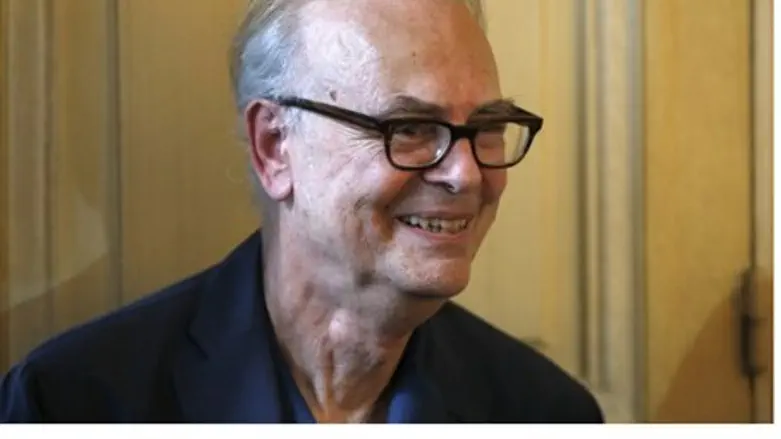
Nobel laureate Patrick Modiano is a chronicler of Paris life under the Nazi occupation, whose brooding works are haunted by the memory of his own loveless childhood.
One of France's most celebrated writers, Modiano was praised by the Nobel committee as a modern-day Marcel Proust.
The 69-year-old novelist known for his shy, gentle manner has described France's occupation by Nazi Germany from 1940 to 1944 as "the soil I grew up in".
Modiano was born at the end of World War II, on July 30, 1945, in the Paris suburb of Boulogne into a family whose complex background set the scene for a lifelong obsession with that dark period in history.
His father Alberto Modiano was an Italian Jew with ties to the Gestapo – and to organized crime gangs – who was spared from wearing the yellow star.
His mother was a Flemish actress named Louisa Colpeyn. The pair met in Paris in 1942.
Published when he was just 22, in 1967, his first novel "La place de l'etoile" (The Star's Place), was a direct reference to that mark of shame inflicted on the Jews.
The book follows a narrator named Raphael on a hallucinatory journey taking in a range of historical and fictional Jewish characters.
Modiano's recreations of wartime Paris are stuffed with meticulous detail – street names, cafes, metro stations and real-life events at that time – earning him the moniker of literary archaeologist.
Along with collaborationist France, his work is haunted by what he remembers as a love-starved upbringing – sometimes creating the impression of a long letter to his parents.
He once joked that his mother's heart was so cold that her lap-sized chow-chow pet leapt from a window to its death.
The eldest of two boys, the young Modiano spent long, unhappy periods in boarding school. His beloved younger brother Rudy died in 1957, when the author was still a boy, and he dedicated his early works to his memory.
At the age of 17, Modiano broke all ties with his father, who died 15 years later and whom he took to task in several of his books.
Still a teenager, Modiano left school and began to write, by hand as he would continue to do throughout his life.
"I was not yet 20, but my memories date to before I was born," he has said.
While his troubled childhood has been a source of inspiration, the author says he is not given to soul searching.
"I have nothing to confess, nothing to clear up and I have no need for self-examination. On the contrary, the more things remain obscure and mysterious, the more they interest me.
"I even try to find mystery in things that have none," he wrote in the autobiographical work "Pedigree" (2005).
In a nod to that penchant for mystery, the French term "modianesque" has come to refer to a particularly ambiguous person or situation.
Modiano himself has cited a famous quote by Stendhal to illustrate his work: "I cannot give you the reality of facts, I can only present the shadow."
He once described his characters – some of whom crop up from one work to another – as "images from a tapestry that has been woven half asleep."
In 1972, Modiano was awarded the French Academy's Grand Prize for his novel "Ring Roads", and the prestigious Goncourt Prize in 1978 for "Missing Person".
In 1996, he won the National Literature Grand Prize for his entire work.
Popular later works include "Dora Bruder" (1997 – also known in English as The Search Warrant), "Un Pedigree" (2005), and "Dans le cafe de la jeunesse perdue" (2007 – In the Cafe of Lost Youth), which tells the story of a young woman, Louki, from several points of view including that of a detective and a lover.
His latest novel, "Pour que tu ne te perdes pas dans le quartier" (So you don't get lost in the neighborhood) appeared in French this month.
In the early 1970s, Modiano co-wrote the screenplay for Lacombe Lucien, a movie directed by Louis Malle focusing on French collaboration with the Nazis.
The married father of two daughters has also written songs and children's books, and in 2000 sat on the jury of the Cannes Film Festival.
While translated into more than 30 languages, the author has trouble expressing himself in public and refused a nomination to the elite Academie Francaise, with a critic once describing him as "1 meter 90 of timidity and candor".